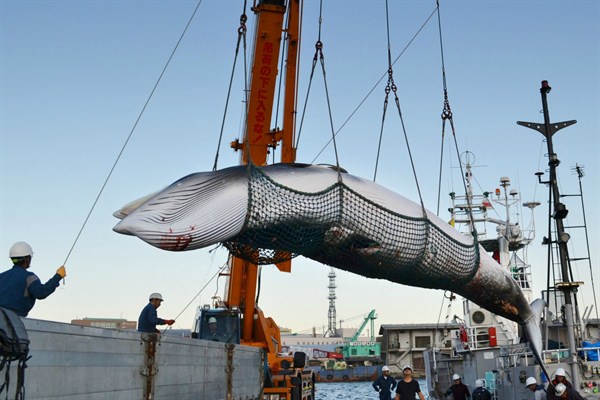In late December, Japan formally announced it would withdraw from the International Whaling Commission, or IWC, clearing the way for it to resume commercial whaling in July 2019. In announcing the move, the Japanese government criticized the IWC and member states for what it portrayed as an uncompromising anti-whaling posture. But environmental activists attacked the decision, with the executive director of Greenpeace Japan calling it “out of step with the international community.” In an email interview with WPR, Natalie Barefoot, acting director and lecturer at law for the University of Miami School of Law’s Environmental Justice Clinic, discusses Japan’s reasons for leaving the IWC, and the impact of its withdrawal on the commission and efforts to protect whale populations.
World Politics Review: Why has Japan been so adamant about returning to commercial whaling, and what led it to finally withdraw from the IWC?
Natalie Barefoot: The reality is that Japan never desired to stop commercial whaling in the first place. When the moratorium on commercial whaling was passed in the IWC in 1982, Japan, Norway and the Soviet Union lodged formal objections. However, due to political pressure from the United States, Japan withdrew its objection to the moratorium, but continued whaling under the scientific research exception once the moratorium went into effect in 1986.

